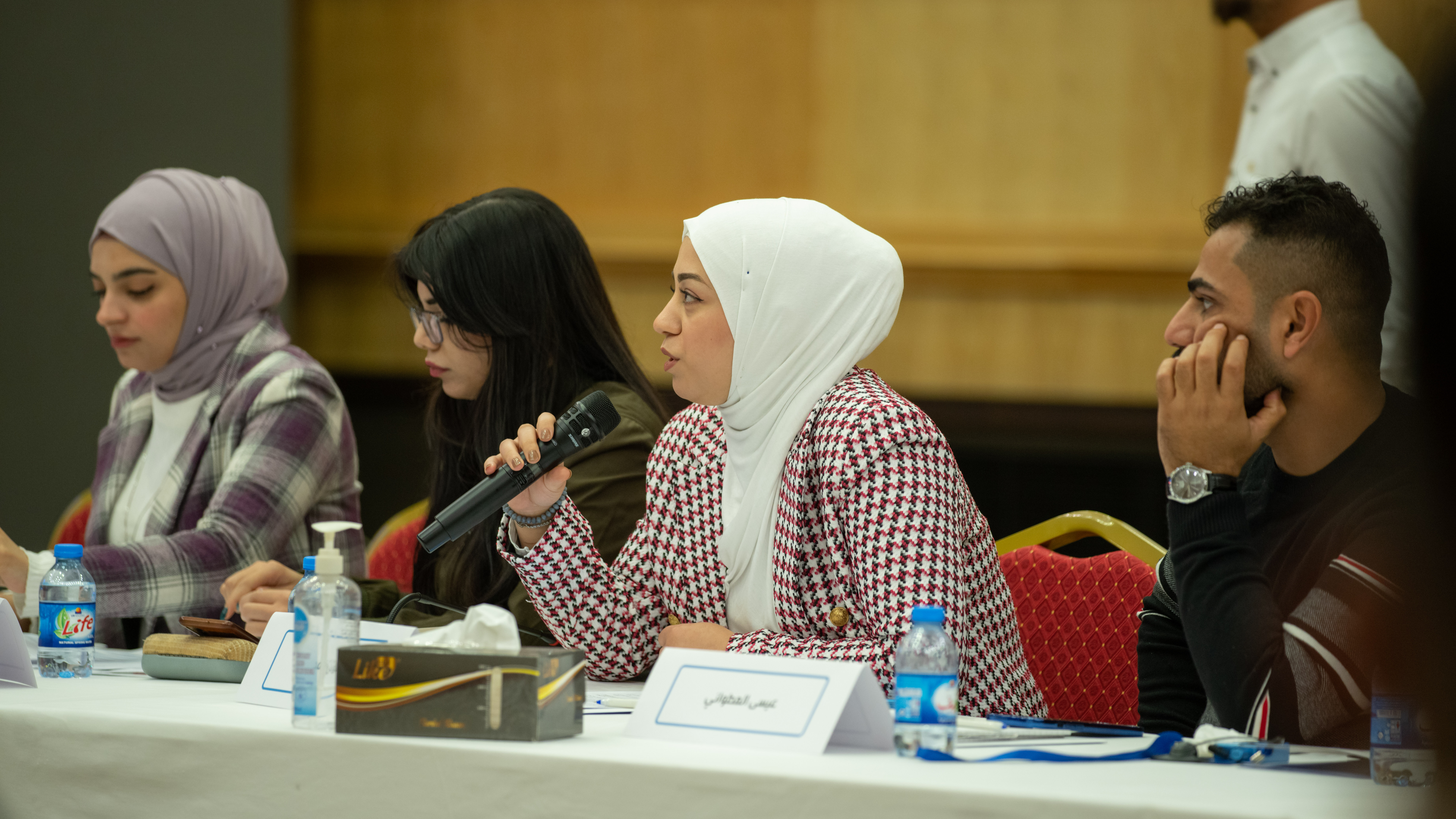Read how UNDP is working with media and civil society to strengthen investigative reporting on corruption in Iraq.
Uncovering the truth: Iraqi journalists fight corruption head-on
March 2, 2023

Participants actively engage with the trainers during the sessions
Despite challenges, Iraq has taken bold steps to address corruption and promote transparency. Empowering media and civil society to report and investigate corruption promotes transparency and accountability, which are essential for a well-functioning society. A group of young and determined investigative journalists are working hard to uncover corrupt practices and promote transparency.
Empowering investigative journalism
Supported by UNDP's Anti-Corruption and Arbitration project, 26 young journalists and civil society representatives have received training in investigative journalism and reporting. Today, they are better equipped to conduct in-depth investigations and hold those in power accountable.
Duha al-Shammari, 29, a teacher and human rights activist from Babel, is one of these journalists. She and her colleagues founded an organization to expose corruption, and their latest investigation focused on financial commitments made by the government towards tackling corruption. "Our work is important to fight corruption and increase accountability in Iraq," she says.
Specialized training on investigative techniques
Over 200 eligible civil society representatives and journalists applied to participate in the project's specialized training on investigative reporting. After a shortlisting and vetting process, 26 participants were selected for the first batch of training.
Jameela Hatem Yassin, 35, a sociology teacher and public relations officer with the Anbar Women's Organization, is working on an investigative report about forcibly disappeared victims who have been denied their basic rights. "This exposure is helping us conduct in-depth investigations and holding those in power accountable for their actions," she shares.
The training was delivered in four parts over five months, each lasting three days. During this, they gained a deeper understanding of how the media can address and report on issues related to common forms of corruption.
Protecting journalists and sources
For instance, during a session on cybersecurity, Duha and Jameela learned how to protect their data from digital attacks. "We need to be safe and protect our data when working on investigations," she adds.
Journalists recognize their crucial role in uncovering and disseminating vital information to the public. However, they are often targeted because of the sensitive information they publish. "We strongly believe that the government must protect journalists working on corruption-related topics and enact laws to safeguard our families. Our work is crucial in promoting transparency and accountability in Iraq, and we need to be able to report without fear of threats or intimidation from those in power," says Jameela.
The training also featured sessions on whistleblower protection, specifically designed to safeguard the anonymity of sources. Hassan Musa Ismail, 27, a civil activist from Dohuk, says, "Learning about the legal protections available for whistleblowers and how to maintain their anonymity was essential to ensure that I could effectively expose wrongdoing and hold those in power accountable. I now feel more confident in my ability to protect the sources who come forward to provide me with sensitive information."
Promoting transparency and accountability
While the training also included fact-checking and how to incorporate it into investigative reporting. This is an essential component of reporting as it ensures accuracy and credibility. Khattab Aziz Suleiman, 35, a researcher at Stop Organization for Monitoring and Development, adds, "In the age of social media, it's more important than ever to ensure that the information we're presenting is accurate and can be trusted. Fact-checking is one of the best ways to ensure that our reporting is reliable and can withstand scrutiny."
The sessions covered research and interview techniques, digital security, data analysis, and fact-checking. The training also exposed participants to best practices from across the region, ethical issues relevant to investigative journalism and the legal implications of publishing sensitive information.
Today, journalists like Hassan, Jameela, Duha, and Khattab are more confident reporting corruption, promoting transparency, and holding those accountable for their actions. By continuing to support and train young journalists, we can hope for a brighter future for Iraq.
About:
The Europe Union and UNDP are collaborating on the 'Anti-Corruption and Arbitration in Iraq' project, which builds on Iraq's efforts to improve transparency and accountability across state institutions. The project supports Iraq's fight against corruption by supporting institutions to revise its anti-corruption laws and providing specialized on-demand training for corruption investigators and integrity judges.

 Locations
Locations